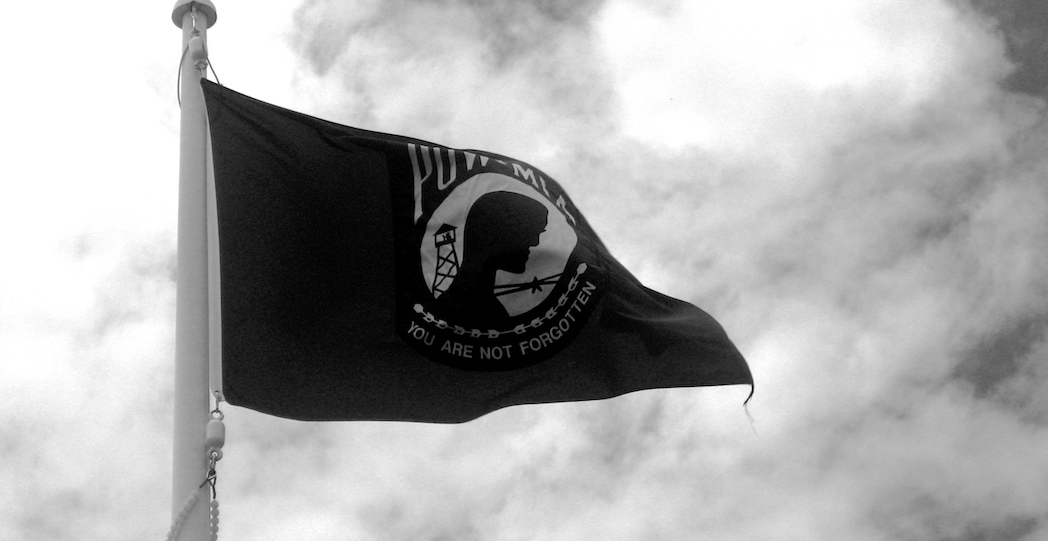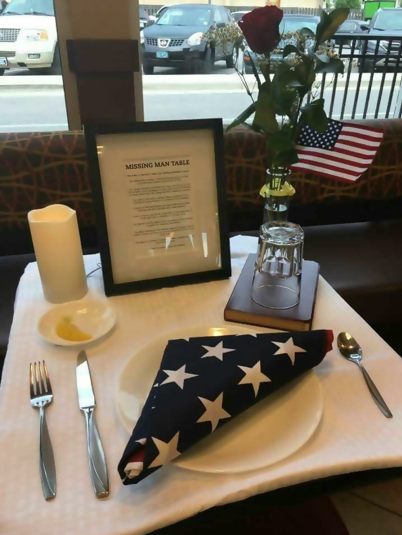On POW/MIA Recognition Day, we remember and recognize our heroes who never came home and those who were held by the enemy. As a nation, we must reflect on their sacrifice…on what they gave for us and on what their families had and have to endure. It is a somber, yet hopeful day all in one. We mourn, but also hope, for those who are still missing.
For those who are not familiar with these two acronyms, let us explain: Among the hundreds of thousands who serve our country throughout all of the armed forces, a special designation exists for those who went missing or were captured during their service. Those who are captured by enemy forces, or inside enemy territory, are known as “Prisoners of War” or POWs. There is also the designation “Missing in Action” or MIA. it is given to any service member who becomes unaccounted for during wartime.
These two groups of service members are recognized together today as National POW/MIA Recognition Day.
MIA: The Lack of Closure
For service members who are declared missing in action, their families may have an extraordinarily difficult time comprehending the situation. The uncertainly can take a tremendous toll.
Missing in Action is a solemn status, yet there is hope. Members of MIA families have a resiliency that outshines many. Their continued dedication in hoping for the best is truly inspiring. Today we recognize the families and close friends of those who are missing—and we at IHG® Army Hotels remain hopeful.
POWS: Capture and Release
One possibility is that the missing service member is being held or interrogated by an enemy force. As soon as this is confirmed, their status changes to that of a POW.
In the case of the Vietnam War, most prisoners were released in 1973 after drawn out negotiations. This effort was known as “Operation Homecoming.” This operation has officially ended; however, anytime it is revealed that a POW has been found, or MIA remains have been identified, it is typically called by that name as well.
Just recently, a Southwest Airlines pilot was fortunate enough to fly his father’s remains home after being missing for 50 years.
It is stories like these that make this day so important. It doesn’t matter how long somebody has been gone, our country never stops looking for them.
POW/MIA Recognition Day: What can you do?
On POW/MIA Recognition Day, many establishments set up “Missing Man” or “Fallen Comrade” tables such as the one pictured above. These are solemn reminders of their absence--and that their country will never give up on them. Consider setting up one in your own home and sharing photos of it on social media with the hashtag #POWMIA to encourage others to join in the recognition.
If you have friends or family who have a service member who is missing, consider inviting them over and reading the time-honored script which describes each item on the table. It is incredibly touching and moving.
If you do not have enough time to set this up yourself, you can drop into your local VFW for a dining reception which usually includes this ceremony.
Whether or not your take part in any of the aforementioned ways of recognizing POW/MIA Day, it is a good time to reflect on what service means. Those who sign up to fight for our freedom accept that they may never come home. Today we honor those who gave all as prisoners of war—and all the missing.






